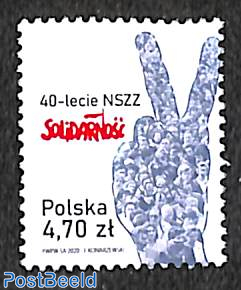
It was always interesting speaking with those who escaped tyranny when I began my studies. My intention was not to educate myself on the nature of those regimes nor even challenge those ideas in my youth, but to understand the effect on individuals who survived the physical and mental struggle of a failed society. I was told that in my country, everyone believed everything they were told by the Government, where as in her country of Czechoslovakia, no one trusted anything they Government ever said. This view of the world is meant to not only keep one’s life from becoming suspect to the tyranny of their Government, but also to maintain one’s own sanity in a place that was a physical and mental prison, designed to enshrine corruption above and beyond a person’s natural rights.
While literature classes in an English speaking atmosphere often encourages students to follow novels based on British traditions and society, it was more useful to me to study places similar to where my family originated from. With a diverse background also came a diversity of places that were subject to different types of tyranny. While these places differed greatly, tyranny often crushes one’s humanity in a similar fashion. The works of Czech author Milan Kundera was notable, as a person who wrote about life under Communism post the Prague Spring. As described by my colleague at the time, their society was one where people only communicated in whispers, and were weary of neighbours, friends and family as the secret police loomed over every action of every citizens. The beginning of tyranny was as interesting as its end, with Boris Pasternak’s Doctor Zhivago showing how the makers and helpers of society will always be turned into criminals by a One Party State, and with the Polish filmmakers Kieslowski’s film Blanc/White showing an emergence from a gray and dead Communist Poland at the end of the Cold War, with the spirit of Solidarnosc giving light to freedom of the country and the individual.
I found out once studying comparative policy between the EU and Latin America that Milan Kundera was popular as well in the South America. While not under Communism, many countries in Latin America also suffered from military dictatorships well into the late 80s and beyond. Despite there being little in common between Czech and Latin American culture on the surface, the isolation and torment of living under a dictatorship in Latin America in those years can be clearly understood by those living under Communism in places like Prague in 1968, Budapest in 1956, Warsaw and Gdansk in the early 80s and East Berlin in the late 80s.
Lessons from this era of tyranny is not lost in modern times. Some tenants of free thinkers are sacrosanct, and movements like Solidarnosc in Poland has proven that persistent, peaceful and coordinated protest movements can heal a society. Latin American academic Guillermo O’Donnell studied the transition of military dictatorships into democratic nations during his studies, and he showed that there are different aspects of democracies that need to all function in order to produce a healthy and free society. Institutions and grassroots movements need to be married to clear and unwavering property rights and an open society built on free speech. The basic rules of laws should never be suspended, as those with unchecked power will corrupt them without fail. A free media should in a manner be part of the checks and balances on a society, as when a media is controlled or works for the Government, they tend to decay the checks and balances instead of functioning to challenge those in power to ensure a free society.
Democracies work in order to create methods and guarantee rights so that citizens never have to live in silence. If a society is crumbling, a Government will promote individuals operating on a level of subsistence just to maintain their food, shelter and basic needs so opposing views remain powerless. The checks and balances function to relieve pressures in society so that citizens can be confident that a small, elite group cannot choose to extinguish their rights, their property and their lives. Without these values to release pressures and tensions in a democracy, a country will vacillate violently between oligopolies, kleptocracies, military dictatorships, and one party states. Democracy is not just about voting ever few years, its about being able to be a human and have a free voice in a multidimensional and institutionally healthy community.